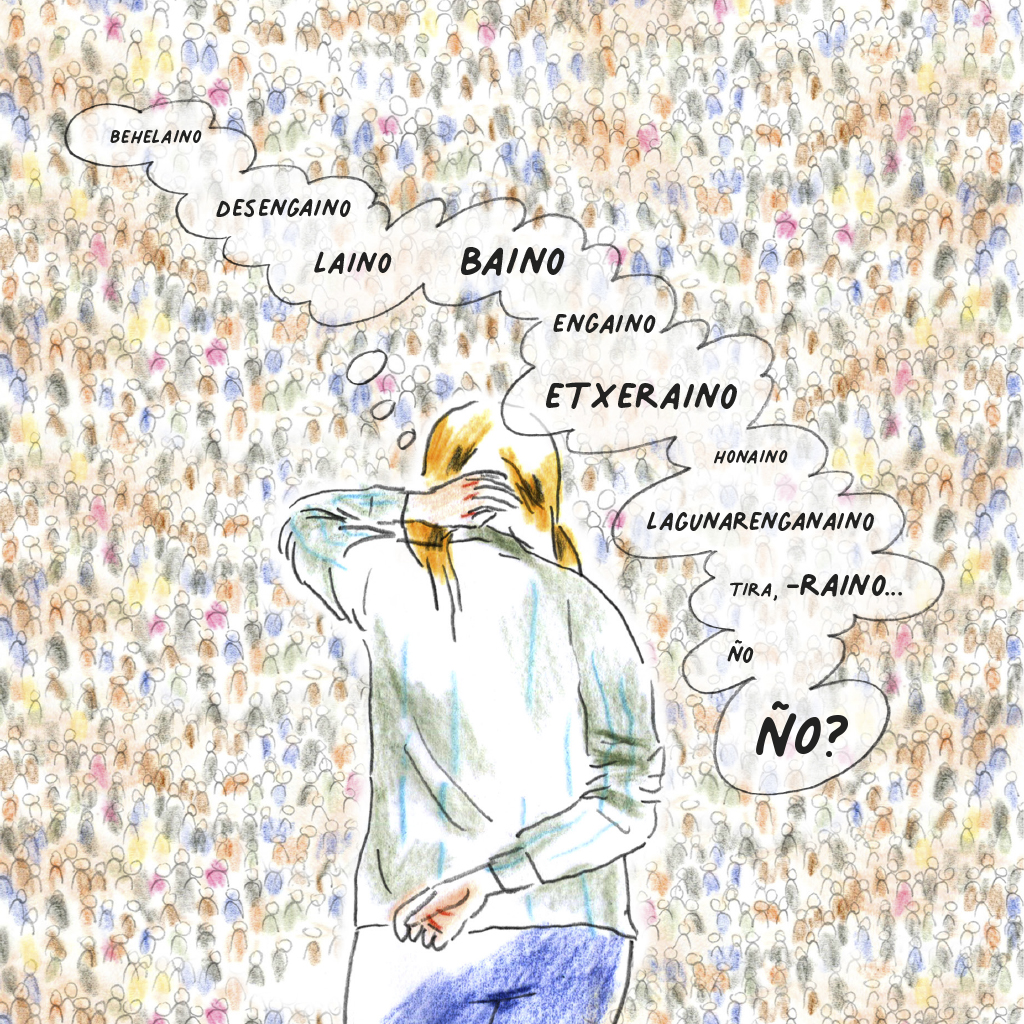
- Both jobs will be sold by ARGIA at the Ziburu Fair next Saturday. The comic book was made by Maitane Gartziandia, Eli Pagola and Miren Artetxe. This book covers the news stories of Koldo Izagirre.

The comic Ño has uncovered ten situations that can happen around a bertsos session, ten scenes that, in comfortable and less comfortable contexts, will reflect ghosts, obstacles, handles and tools of progress of Bertsolaris women, praising the gestures of complicity and enjoyment among their members.
The illustrations are by Maitane Gartziandia, who says that “each scene is a picture. They are photographs or frames of the isthantes of a few seconds, very descriptive, where action is not so important, but to describe a sensation, an environment.”
Eli Pagola and Miren Artetxe have taken care of the script. However, the image occupies the greatest weight in all the scenes and, although it focuses on the world of the bertso, no verse appears except in a historical series. These are verses of the character that will counterpoint the comic: Joxepa Antoni Aranberri Petriarena Xenpelar. He was a worker and bertsolari of the Errenteria factory and has been inserted in photographic montages in various passages of the book, as the authors say, “to satisfy the bertsolaris of today.”
Pagola explains that “more theoretical works linking bertsolarism and gender have been carried out and will be carried out. We saw that a comic book job could have a margin. It gives us permission to make jokes about the subject.” Artetxe says that anyone who doesn’t follow these issues very closely may not understand many things, but “it’s a comic book to smile to our peers and the feminists of our bertsos world, which will give them strength to move forward.”
Chronicles, gemstones, key to understanding history
Fifteen years ago came the idea of making the book and Koldo Izagirre has collected the chronicles written in Basque journalism. The title is also included in one of these chronicles: “Joseba Zubimendi, witness of the incineration of Gernika, reports the bombing of Gernika. We also have the most authentic document of the Gernika bombing,” says Izagirre.
The author states that this work is, among others, a material to understand history: “Thanks to these chronicles we will know, among others, the number of wars we have experienced in our country: 1936, Algeria, World War II, First... And because we have not regressed – the oldest chronicle of the book is 1869.”
These are texts published on one occasion and that are maintained “correcting the obvious errors of the printing press and adapting spelling to our time,” says Eizagirre.
Juan Luis Zabala has participated in the correction of errors in spelling and copying and Gorka Bereziartua has collaborated in the selection and many other details.
Both papers will occupy the ARGIA post at the Ziburu Fair, where the authors will also be able to sign books or simply talk about their creations.